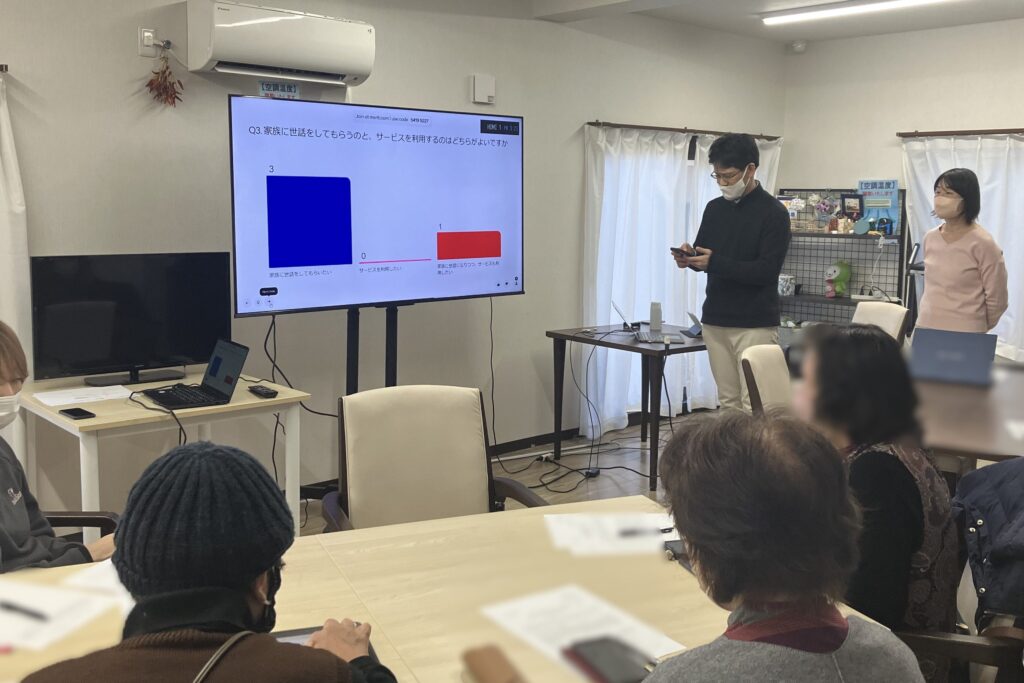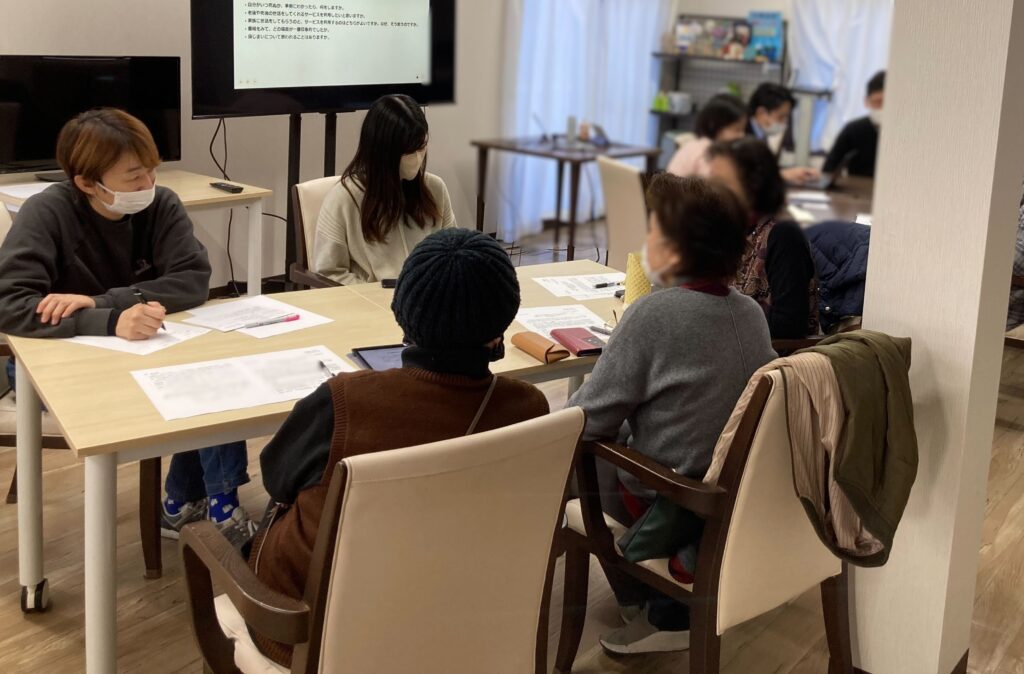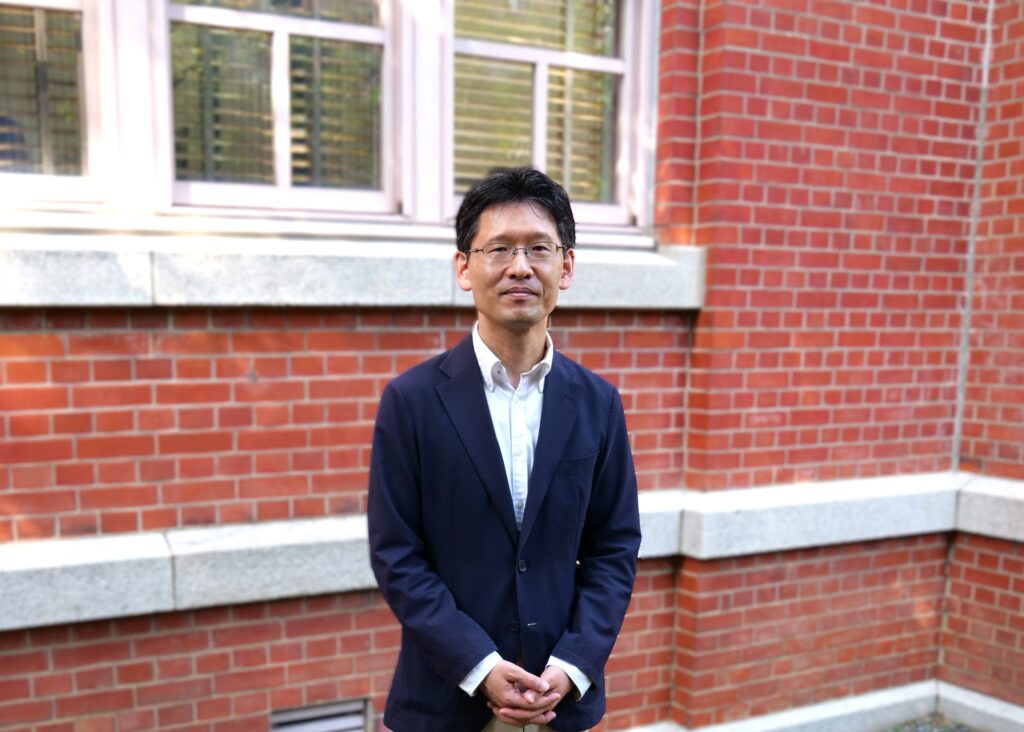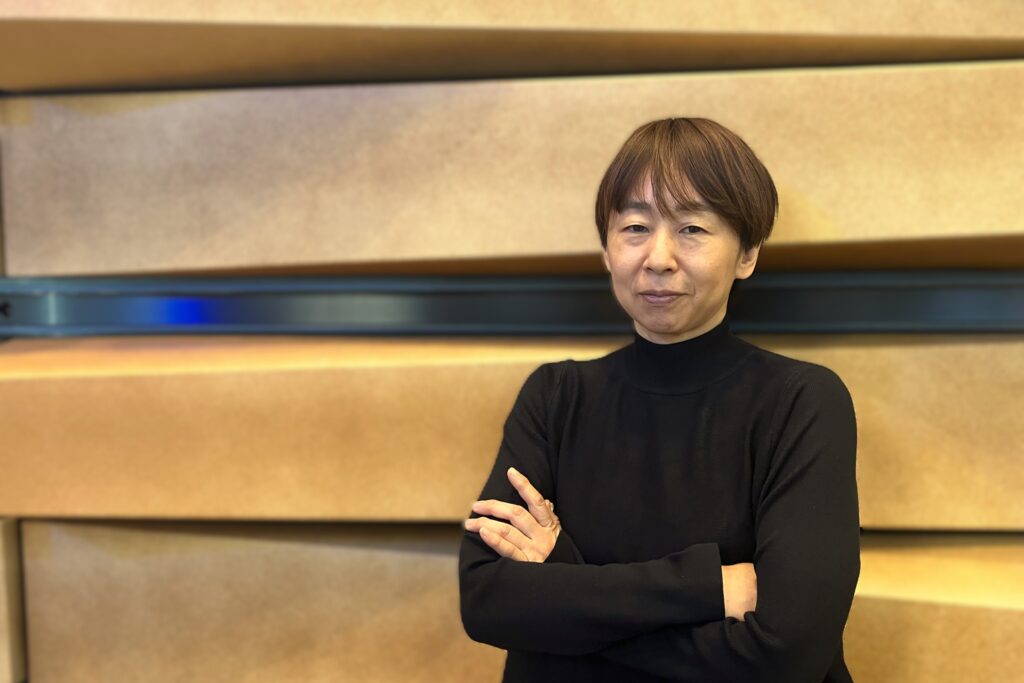"Support for sustainable decision-making and arrangements that preserve dignity for everyone during and after life" project held a dialogue session on the topic of self-destruction with local residents in Wako City on Friday, February 14, 2025. This article describes the dialogue session and what the project members learned.
Scene from the dialogue session
The participants were 10 Wako citizens aged 65 or older.
The dialogue session began with an explanation of the current situation and issues surrounding self-care, particularly support services for the elderly. Using an online survey system, participants were asked to answer questions such as "Have you ever thought about what will happen after you die?" and "Would you like to use a service that will take care of you in your old age or after you die?"

After that, we divided the participants into groups of two to three people and conducted group interviews. The first question was, "If you knew how many years it would be before you died, what would you want to do?" The participants shared their hopes and thoughts, such as tidying up the things in their house, going places they want to go, and seeing friends. From there, each group was free to talk about what they were and weren't currently able to do, how they spend their money, their experiences when saying goodbye to a relative, and more. Although the topic was serious, all the groups proceeded in a friendly atmosphere. Some groups even got excited talking about how they would like to die.

Project member review
Kyoto University/Professor Kodama
Three things made an impression on me. First, many people had made considerable preparations for their funeral. When talking to these people, some said that they had struggled to clean up after the deaths of loved ones, such as their parents or spouses, and that they did not want to put their children through the same troubles. In addition, when asked whether they would prefer family or a professional to help them with the disposal of their body, it turned out that rather than choosing between family or a professional, some said, "I would like to do as much as possible on my own, without relying on either family or a professional." Finally, many people said that it would be difficult to find a reliable professional for both the funeral and post-death disposal, suggesting the importance of certification services provided by the government.
Japan Research Institute/Researcher Sawamura
I tried to think about it with them, but it was a difficult question. The participants this time had families, so their first priority was to sort things out so as not to cause them any trouble. It seemed that many of them talked about how once they had reached a certain degree of closure, they would quietly continue living life as before. I was surprised that none of the groups I interviewed mentioned traveling, indulging in luxury, or seeing people they wanted to see, but I thought that it might be a realistic feeling, rather than a resignation, that such things don't seem meaningful when you think about the end of your life.
Japan Research Institute/Researcher Taihei
From what we have heard, it seems that there is a big difference in experience when it comes to preparing for the end of life. From their experiences of making decisions regarding end-of-life medical care for family members and cleaning up their homes and belongings, they seem to be able to communicate their wishes to those around them, such as what they should prepare for, what they would like their family to do, and the extent to which they can rely on private services. In addition to preparing so that those around you will not be inconvenienced if something happens to you, such as cleaning up the house and expressing their wishes regarding medical care and funerals, they also talked about spending quality time with family and friends and making memories. From what we have heard, we felt that the end of life means not only tidying up your affairs, but also spending time and money on the things that are important to you.
Participants in the dialogue session not only commented that they learned something and that it gave them an opportunity to think about their own decluttering, but also that it was fun and they felt relieved. This project aims to create a movement in which everyone thinks about decluttering as something that concerns them and discusses it. We will continue to hold dialogues with people from various positions, including those who are currently decluttering, those who will be decluttering in the future, and those who support them.


